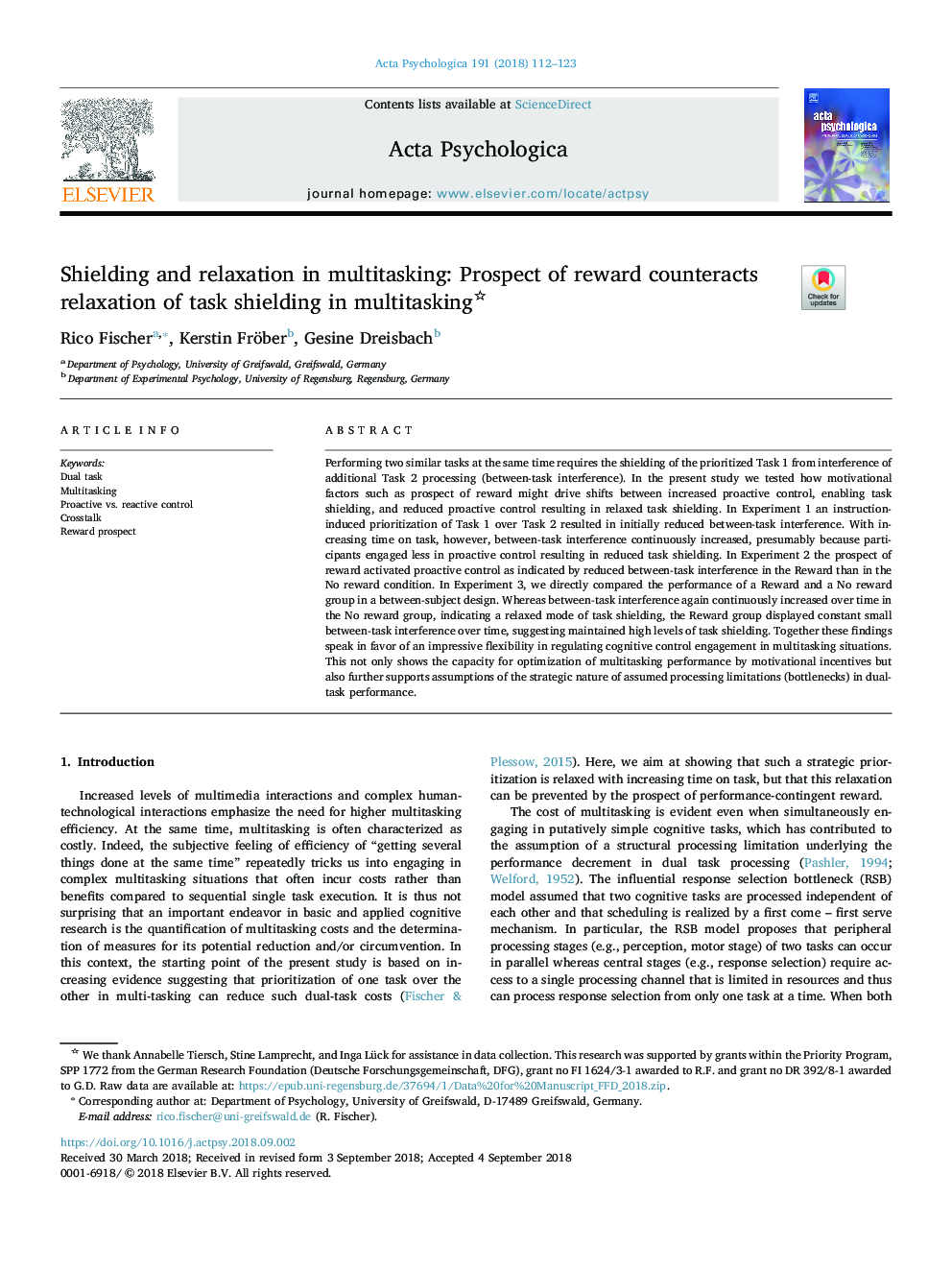| Article ID | Journal | Published Year | Pages | File Type |
|---|---|---|---|---|
| 11029810 | Acta Psychologica | 2018 | 12 Pages |
Abstract
Performing two similar tasks at the same time requires the shielding of the prioritized Task 1 from interference of additional Task 2 processing (between-task interference). In the present study we tested how motivational factors such as prospect of reward might drive shifts between increased proactive control, enabling task shielding, and reduced proactive control resulting in relaxed task shielding. In Experiment 1 an instruction-induced prioritization of Task 1 over Task 2 resulted in initially reduced between-task interference. With increasing time on task, however, between-task interference continuously increased, presumably because participants engaged less in proactive control resulting in reduced task shielding. In Experiment 2 the prospect of reward activated proactive control as indicated by reduced between-task interference in the Reward than in the No reward condition. In Experiment 3, we directly compared the performance of a Reward and a No reward group in a between-subject design. Whereas between-task interference again continuously increased over time in the No reward group, indicating a relaxed mode of task shielding, the Reward group displayed constant small between-task interference over time, suggesting maintained high levels of task shielding. Together these findings speak in favor of an impressive flexibility in regulating cognitive control engagement in multitasking situations. This not only shows the capacity for optimization of multitasking performance by motivational incentives but also further supports assumptions of the strategic nature of assumed processing limitations (bottlenecks) in dual-task performance.
Keywords
Related Topics
Life Sciences
Neuroscience
Cognitive Neuroscience
Authors
Rico Fischer, Kerstin Fröber, Gesine Dreisbach,
